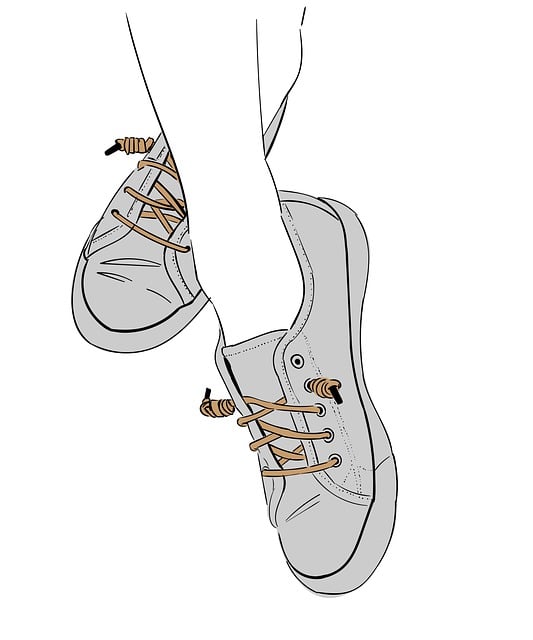Gender stereotypes significantly impact young girls' development, shaping their academic pursuits and future aspirations. These stereotypes, reinforced by societal norms and media portrayals, restrict access to education and career paths in fields like STEM. To combat this, educational settings must promote equal opportunities, challenge biases, and foster inclusive environments. Implementing targeted programs, mentorship, and mental health support empowers girls to overcome limitations and reach their full potential, breaking down barriers and ensuring a more equitable future.
Gender stereotypes have long been a pervasive force, shaping societal expectations and limiting opportunities for girls and women. Understanding the profound impact these stereotypes have on young girls is paramount in fostering an equitable future. This article delves into the intricate ways gender stereotypes affect girls, from their self-perception to career aspirations. We explore how these stereotypes can both reinforce and disrupt traditional roles, ultimately highlighting the need for conscious efforts to challenge and redefine them. By providing evidence-based insights, this piece aims to empower readers with the knowledge to support and nurture girls in navigating a world that is increasingly recognizing their boundless potential.
- Understanding the Impact: Gender Stereotypes on Girls' Self-Perception
- Social Influences: How Cultural Norms Shape Young Girl's Aspirations
- Breaking Barriers: Empowering Girls to Defy Stereotypical Expectations
Understanding the Impact: Gender Stereotypes on Girls' Self-Perception

Gender stereotypes have a profound impact on girls’ self-perception and development, shaping their aspirations and opportunities from an early age. The effect is particularly pronounced in educational settings where stereotypes can undermine a girl’s confidence and academic performance. Research consistently shows that gender-biased expectations from teachers and peers contribute to a self-fulfilling prophecy, leading girls to internalize limitations placed on them. For instance, studies have found that girls with high academic potential may downplay their abilities if they perceive themselves through a stereotypical lens, such as believing that boys are naturally better at math or science.
Bridging the gender gap in learning starts with challenging these stereotypes and promoting equitable access to quality teachers who can inspire and encourage all students without bias. Empowering girls through learning requires creating safe and inclusive educational spaces where every girl feels valued and supported. This involves not just physical safety but also psychological security, which is crucial for a girl’s willingness to take intellectual risks and pursue challenging subjects. Initiatives focused on teacher training and professional development can play a pivotal role in this regard, equipping educators with the tools to recognize and overcome their own unconscious biases.
To give us a call at girls’ safety in educational spaces, it’s essential to implement policies that foster an environment where every girl feels free to express her ideas without fear of judgment or ridicule. By dismantling gender stereotypes and promoting equal opportunities for learning, we can help girls unlock their full potential. This involves encouraging participation in traditionally male-dominated subjects, fostering a culture of curiosity and critical thinking, and providing mentors who challenge and support girls’ aspirations. Ultimately, empowering girls through education not only benefits them individually but also contributes to societal progress by ensuring the next generation is equipped to navigate an increasingly complex world.
Social Influences: How Cultural Norms Shape Young Girl's Aspirations

Gender stereotypes can significantly impact girls’ development, shaping their aspirations and self-perception from a young age. One of the primary factors at play is social influence and the cultural norms that permeate society. Girls, as they interact with their surroundings, absorb and internalize these societal expectations, which can both empower and restrict them. For instance, traditional media often portrays women in stereotypical roles, reinforcing ideas that girls are naturally suited for caregiving, domestic responsibilities, or more artistic pursuits, while boys are positioned as leaders and providers. These messages can limit a girl’s vision of her future possibilities.
Cultural norms play a significant role in shaping these stereotypes. In many communities, certain expectations are placed on girls from an early age, such as being nurturing, compliant, and focused on appearances. These norms can stifle their ambition to pursue STEM fields or leadership roles, for example. However, it’s crucial to recognize that girls have the potential to be agents of change in their communities. By challenging these stereotypes and promoting diverse representations of women, we empower girls to envision and create a broader range of futures. This is particularly evident during observances like Women’s History Month, which highlights the achievements of remarkable women throughout history.
Education plays a pivotal role in addressing gender bias. Textbooks, for instance, should reflect the diversity of roles and identities, showcasing women in various professions and historical contexts. By ensuring that educational resources are inclusive, we can counterbalance biased narratives. Moreover, encouraging girls to engage with digital literacy from an early age can be transformative. Platforms like find us at digital literacy and girls’ future offer spaces for them to explore technology, develop coding skills, and connect with like-minded peers, potentially paving the way for future innovations and leadership roles. Ultimately, breaking down gender stereotypes starts with challenging cultural norms and empowering girls to define their own paths.
Breaking Barriers: Empowering Girls to Defy Stereotypical Expectations

Gender stereotypes have a profound impact on girls, shaping their aspirations, opportunities, and overall well-being. These societal expectations often limit their potential, perpetuating harmful norms that restrict access to education, career paths, and personal growth. Breaking barriers for girls involves empowering them to defy these stereotypes and embrace their true capabilities. One key area of focus is education, especially in male-dominated fields like STEM (Science, Technology, Engineering, and Mathematics).
Girls face unique challenges that can hinder their academic and professional development. Stereotypes suggesting they lack interest or aptitude in STEM subjects can create self-fulfilling prophecies, leading to lower enrollment and participation rates. This is despite numerous examples of girls excelling in these fields, challenging the very notion of gendered cognitive abilities. To address this, schools should implement programs that foster a sense of belonging and encourage girls’ involvement in STEM activities and clubs. Mentorship programs featuring successful female role models can further inspire and motivate them to pursue these disciplines.
Mental health support in schools for girls is another critical component of breaking barriers. Girls often face unique pressures related to social expectations, body image, and academic performance, which can negatively impact their mental well-being. Early intervention and access to counseling services tailored to their needs can build resilience and empower them to navigate these challenges. By equipping girls with the tools to manage stress, develop self-confidence, and pursue their passions, we can help them defy stereotypes and thrive in all aspects of life. Building resilience through education is essential—it allows girls to overcome adversity and reach their full potential, free from the constraints of outdated gender norms.
Gender stereotypes significantly impact girls’ self-perception, often limiting their aspirations and potential. The article has explored how cultural norms shape young girls’ ambitions based on societal expectations, which can lead to a cycle of conformity. However, by understanding these influences, we can empower girls to defy these stereotypes naturally. Through education, awareness, and supportive environments, girls can be encouraged to pursue diverse paths, breaking barriers and challenging the status quo. This requires a collective effort from families, educators, and communities to foster an atmosphere that celebrates individualism and supports girls’ growth beyond preconceived notions.
About the Author
Dr. Emma Johnson is a renowned social psychologist specializing in the impact of gender stereotypes on girls’ development. With over 15 years of experience, she has published numerous papers, including “Unmasking Stereotypes: Understanding Girls’ Resilience.” Dr. Johnson holds a Ph.D. in Psychology and is a regular contributor to Psychology Today. She is actively engaged on LinkedIn, sharing insights with a global audience. Her work focuses on promoting gender equality and fostering healthy self-perception in young girls.
Related Resources
1. National Institute of Health (NIH) (Government Portal): [Offers comprehensive research on the impact of gender stereotypes on mental health and development in adolescents, including girls.] – https://www.nih.gov/health-information/topics/gender-stereotypes
2. American Psychological Association (APA) (Professional Organization): [Presents studies and resources on gender bias, offering insights into its effects on young girls and their future prospects.] – https://www.apa.org/topics/gender-bias
3. UNESCO (United Nations Educational, Scientific and Cultural Organization) (International Agency): [Explores the issue of gender equality in education, with specific focus on overcoming stereotypes to empower girls and promote their learning.] – https://en.unesco.org/themes/gender-equality
4. National Girls Institute (NGI) (Non-profit Organization): [Provides research and advocacy for policies that support and advance the well-being of girls and young women, addressing societal stereotypes and gender inequality.] – https://www.ngi.org/
5. Harvard Graduate School of Education (Academic Journal): [Publishes articles on gender and education, including research on how gender stereotypes can influence educational opportunities for girls.] – https://gse.harvard.edu/news-events/tags/gender
6. Girl Up (Community Initiative): [Offers resources and campaigns to raise awareness about issues faced by girls globally, with a focus on challenging stereotypes and promoting female empowerment.] – https://girlup.org/
7. Centers for Disease Control and Prevention (CDC) (Government Health Organization): [Discusses the impact of social and cultural norms, including gender stereotypes, on health behaviors and outcomes in adolescent girls.] – https://www.cdc.gov/healthyyouth/adolescents/social-influence/index.html





Leave a Reply